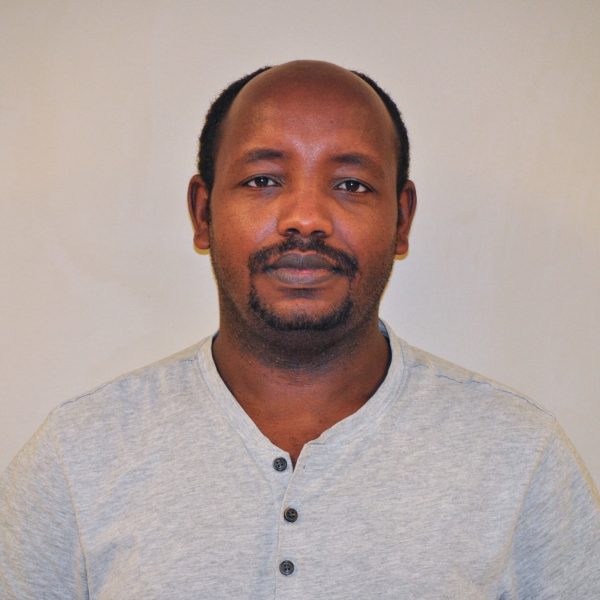Alumni Column – Extraordinary Rendition
In September 2006, the Bush Administration released the “National Strategy for Combating Terrorism.” The War on Terror is characterized as a different kind of war in that it is both a battle of arms and a battle of ideas. “In the long run, winning the War on Terror means winning the battle of ideas. Ideas can transform the embittered and disillusioned either into murderers willing to kill the innocents, or into free peoples living harmoniously in a diverse society.”
In September, General Petraeus told Congress that U.S. forces in Iraq are winning the battle of arms. Are we also winning the battle of ideas? Critics contend that the U.S. government is losing this battle because it has abandoned traditional American values and lost its moral authority as a world leader.
Consider the case of Maher Arar, an engineer born in Syria whose family emigrated to Canada when he was a teenager. In September 2002, his family took a vacation in Tunisia. While awaiting his plane to return to Canada, he was arrested at JFK airport because his name appeared on the U.S. Watch List for terrorist suspects. American officials questioned him for two weeks about a terrorist suspect who had worked with Arar’s brother. Arar did not know the man and was not charged with any crime. Nevertheless, he was placed on a private plane and transported to Syria for further interrogation. While in Syria, Arar was whipped with an electrical cord and forced to live in a windowless underground cell. After a year of this mistreatment, the Canadian government intervened and he was returned to Canada. In due course, after a detailed investigation, the Canadian Government determined that Arar was innocent.
Arar was a victim of a pernicious U.S. program known as “extraordinary rendition.” Under this program, foreign nationals suspected of being terrorists or having links to terrorists are captured and secretly transported (kidnapped) in executive jets to foreign countries for “enhanced interrogation.” Critics contend the U.S. sends suspects to countries such as Syria and Egypt precisely because they routinely engage in torture. If so, how does the U.S. government justify this practice?
The U.S. government initiated the rendition program after the bombing of the World Trade Center in 1993. Evidence revealed that Osama bin Laden was responsible for this attack and prosecutors issued an indictment seeking his arrest. CIA officials, however, were concerned that if bin Laden were captured and prosecuted in the U.S., the rules of evidence applicable to criminal trials, which require “transparency,” might lead to disclosure of secret CIA methods and procedures. From the CIA’s standpoint, it would be preferable if bin Laden and other known terrorists were interrogated outside the U.S. So, with the assistance of Justice Department attorneys, the rendition program was born.
Prior to September 11, 2001, the rendition program included safeguards to protect innocent people. Only persons convicted in absentia, based on solid evidence of guilt, could be rendition targets, and the CIA’s legal counsel was required to approve every operation. After the 9/11 attacks, however, the rendition program was reevaluated, based on legal advice furnished by attorneys in the Department of Justice and White House counsel Alberto Gonzales. These lawyers advised that the President, as Commander in Chief, has virtually unfettered discretion to prosecute the War on Terror and could even ignore laws passed by Congress that infringed on presidential authority. The so-called “New Paradigm” was highly controversial and was strenuously opposed by governmental lawyers. In particular, lawyers in the State Department argued that the legal analysis supporting the New Paradigm was seriously flawed. But the rendition program, as well as other programs, was greatly expanded, and over time the established legal safeguards were ignored and abandoned.
The Bush Administration contends that while “mistakes are made,” aggressive U.S. policies like rendition have produced valuable intelligence. But critics, including Senator John McCain, a former POW, say that suspects who are tortured will confess to anything. The classic recent case is Ibn al-Sheik al-Libi, who ran training camps for al Qaeda in Afghanistan. After the U.S. invaded Afghanistan, he was captured and transported to Egypt. After “enhanced interrogation,” Ibn Sheik told interrogators that Saddam Hussein had furnished information to al Qaeda on how to build chemical weapons. During his appearance at the United Nations, Secretary of State Colin Powell relied upon Ibn Sheik’s statements as proof of the connection between al Qaeda and Hussein, which justified the invasion of Iraq. However, the information obtained from Ibn Sheik was later proven to be false.
The full extent of the U.S. rendition program is unknown. President Bush and Secretary of State Condoleeza Rice have stated that the U.S. Government does not transport persons to countries where they know they will be tortured. Nevertheless, Human Rights Watch and other international organizations have reported that the CIA has subjected hundreds, if not thousands, of persons to extraordinary rendition in countries known to engage in torture. Some of these individuals have “disappeared.” Others are being detained in facilities operated by the CIA, known as “black sites.” Numerous requests of the Committee for the Red Cross for access to such facilities have been denied. Some prisoners were subjected to “water boarding,” a technique in which interrogators strap the prisoner to a board with his feet above his head, cover his mouth and nose with cellophane and pour water over his face to create the sensation of drowning. This technique has long been outlawed as torture. Yet the Bush Administration’s nominee for Attorney General refused to acknowledge that water boarding is torture.
Lawsuits are beginning to work their way through the Federal courts with allegations that the U.S. government and its agents have violated U.S. and international laws, including laws prohibiting torture. The Bush Administration has been relying on the so-called “state secrets privilege” to dismiss or delay these lawsuits. On October 10, 2007, the U.S. Supreme Court declined to hear the appeal filed by Khaled el-Masri, a German citizen of Lebanese descent, who claims he was abducted and tortured by CIA agents in Afghanistan. The Justices thus let stand the ruling of a lower court to dismiss the lawsuit on the grounds that permitting the case to proceed to discovery and trial would reveal “state secrets.” But many other cases are in the pipeline, and at some point the United States government, and its citizens, will have to confront issues raised by extraordinary rendition and other harsh, and probably illegal, practices.







